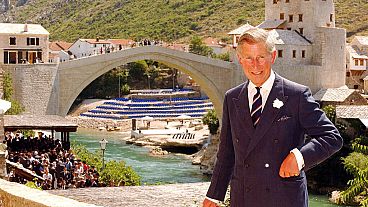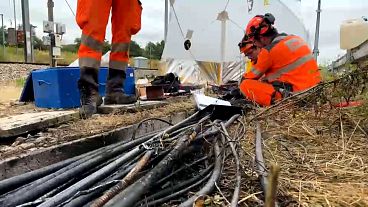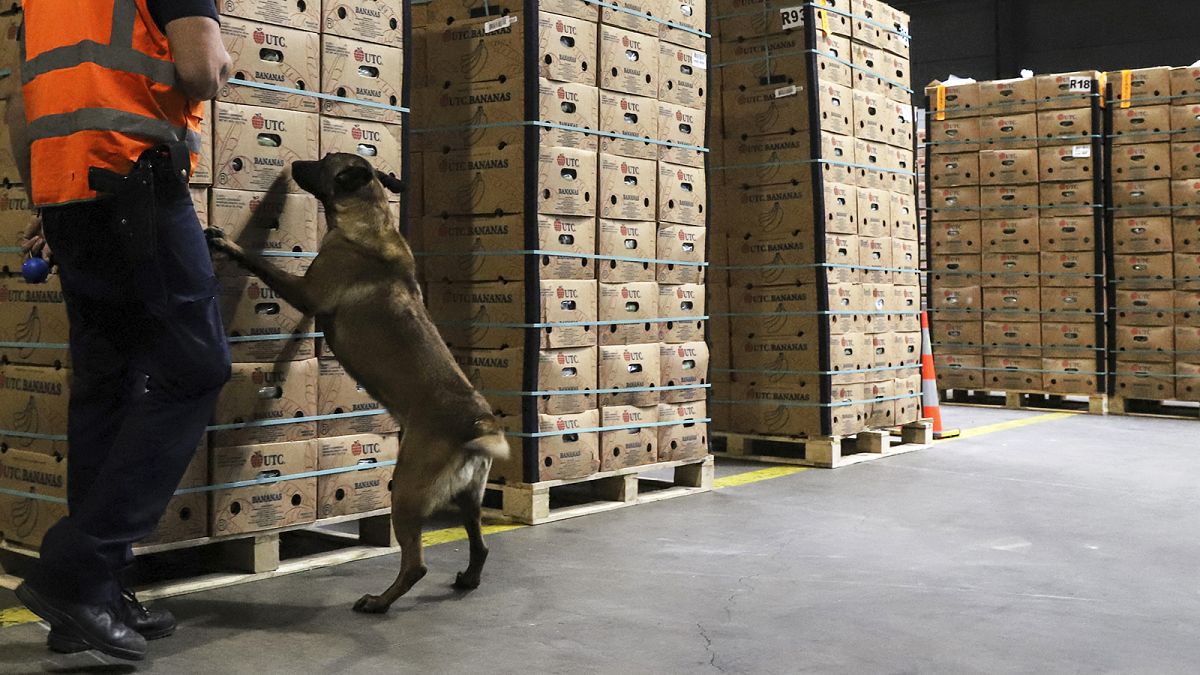With recent large-scale confiscations in the cargo port of Antwerp, the authorities expect that the 100-tonne mark will be surpassed by the end of 2022.
The record amount of cocaine Belgian authorities have seized in Antwerp this year has created a significant backlog in its disposal, causing security concerns as tonnes of it are still waiting to be incinerated.
Just one raid in mid-October saw more than six tonnes of cocaine seized in the Belgian port, found in two shipping containers coming in from Suriname, Belgian customs revealed.
What has been described as "the mountain of cocaine" by Antwerp prosecutor Franky De Keyser earlier in October has now been stored away at undisclosed locations.
The pile-up was caused by several big confiscations in recent weeks, and limitations to the tonnage the incinerators can handle in one go, Federal Public Service Finance spokesperson Francis Adyns told Euronews on Monday.
"The main issue for the customs administration is to destroy all as quickly as possible all the cocaine," he said.
"If we have a huge drug bust, in terms of 5 to 8 tonnes, not everything can be immediately destroyed because of the capacity of the incinerators and in terms of environmental restrictions on the destruction of large amounts of drugs," Adyns clarified.
"But in the meantime, agreements were made with the incinerators who will provide us with more capacity to incinerate them."
Details of the plans to incinerate it and the schedule of incinerations are being kept secret due to fears that criminal organisations could now strike at those locations in an attempt to recover some of the seized narcotics.
"We have to deal with a lot of money (in terms of its street value)," Adyns said.
"The cost of the price on the street of a gramme of cocaine is about €50. So one can imagine if we have seized a few tonnes, what amount that represents."
"Due to these organisations that are not afraid of using violence, as we’ve seen in the Netherlands, and the large amount of money that is at stake, one can imagine that there is an enormous issue when it comes to the security (of the operation and) of our agents," he explained.
Cocaine busts to reach new high
The amount of drugs impounded at the Antwerp cargo port has been on the increase for the last five years and counting.
This has prompted the customs authorities to expand their operation further, including hiring an additional 100 new agents and installing scanners inside the port terminals that will be able to inspect at-risk containers on the spot.
Organised crime syndicates have responded to the uptick in intercepted drug shipments with violence and attempts at terrorising even the country's top officials.
In October, Belgian Justice Minister Vincent Van Quickenborne was the target of a foiled kidnapping plot, said to have been set in motion by a Dutch criminal group.
Van Quickenborne, who has been placed under increased police protection, described it as “narco-terrorism”.
In 2021, Belgium seized a total of 89.5 tonnes of cocaine in Antwerp, an increase of 36% on the previous year and a new all-time high.
The October raid of a cocaine-laced shipment from Suriname was one of more than 100 large-scale trafficking busts made at the port since the start of the year, adding up to some 71 tonnes from January up to that point.
With further major busts in recent weeks, the authorities expect that the 100-tonne mark will be surpassed by the end of 2022, local media reported.
Due to its size and the amount of traffic it handles, Antwerp has been used as the main entry point of cocaine into Europe.
Smugglers have exploited the fact that fruit from South America and the Caribbean — from bananas to pineapples — is shipped to the continent through its second-largest port, often concealing cocaine in the cargo.












